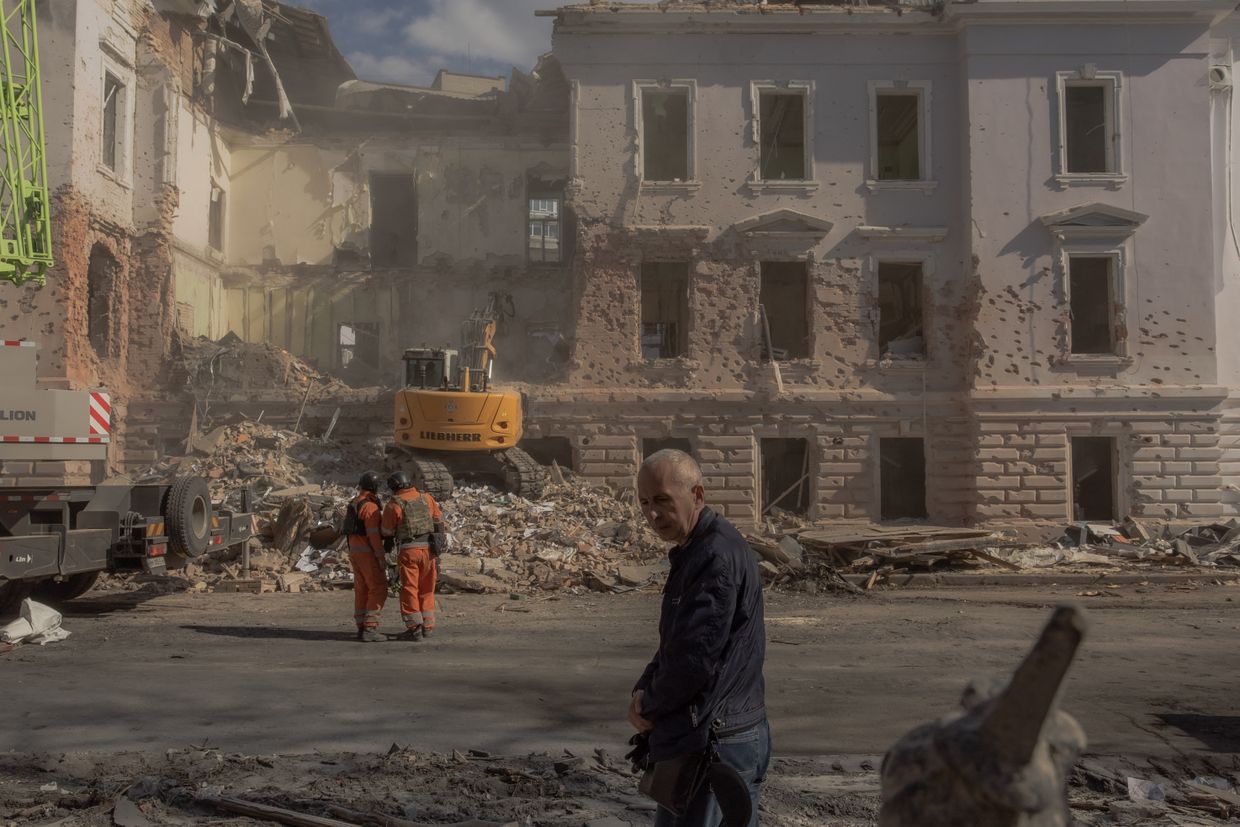NewsBeat
3 Azov POWs sentenced to up to 24 years in occupied territories

Russia’s proxies in Donetsk sentenced three Prisoners of War (POWs) who served with Azov to up to 24 years in prison on April 16.
Previously, a Russian military court sentenced 23 Ukrainians who served with Azov to prison on the charges of “seizure of power” and participating in a “terrorist organization.” Ukraine has denounced such trials, saying that international law prohibits trials with war captives.
Vladislav Ruchka, Andriy Yaroshinsky, and Dmytro Ihnatenko have been sentenced to up to 24 years in prison. They have been imprisoned in sentences ranging from 23 years and nine months to 24 years in prison.
The three POWs were convicted of “cruel treatment of the civilian population and murder motivated by political and ideological hatred” as outlined by the Russian criminal code, the court claims.
Ruchka, Yaroshinsky, and Ihnatenko have been accused of firing a mortar at a grain silo in Mariupol in March 2022 in the early days of Russia’s full-scale war against Ukraine.
One person was killed in the silo, the Investigative Committee of Russia claims, an agency head by Russian President Vladimir Putin.
“Following illegal invasions in 2014 and 2022, the Russian Federation claims to have annexed these regions and subjects them to its repressive legislation, in contravention of international law,” Freedom House says.
Russian propaganda regularly targets Azov fighters and POWs.
Russia is committing genocide in Ukraine’s occupied territories, Foreign Ministry spokesperson Heorhii Tykhyi said on March 21.
“We emphasize that these systematic deportations and persecutions are part of Russia’s genocide policy against the Ukrainian people,” Tykhyi said.
According to a Russian decree, Ukrainian citizens residing in Russia and occupied Ukrainian territories must leave by Sept. 10 or “regulate their legal status.”
Can civilian areas ever be legitimate military targets? We asked an expert
April 13 marked Russia’s deadliest attack on the northeastern city of Sumy, killing 35 people and injuring nearly 120. As locals flocked to the city center on the morning of Palm Sunday, Russia launched two ballistic missiles in what is known as a double-tap attack. The second missile, fired

(function (d, s, id) {
let js, fjs = d.getElementsByTagName(s)[0];
if (d.getElementById(id)) return;
js = d.createElement(s);
js.id = id;
// @ts-ignore
js.src = "https://connect.facebook.net/en_US/sdk.js";
// @ts-ignore
fjs.parentNode.insertBefore(js, fjs);
}(document, 'script', 'facebook-jssdk'));
Source link
